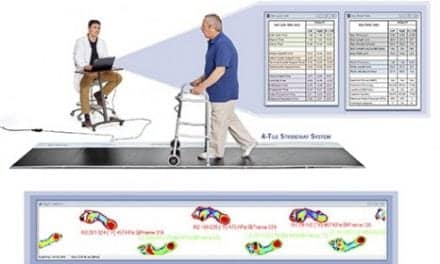A large prospective community-based study of older Americans suggests that better cardiovascular benefits could result from walking faster or at longer distances.
The study was published recently in the journal Circulation.
Dariush Mozaffarian, MD, DrPH, dean of the Friedman School of Nutrition Science and Policy at Tufts University, and his research team followed, for 10 years, 4,207 men and women (mean age: 73) who had been enrolled in the Cardiovascular Health Study (CHS).
During this time, the research team—using the information in the CHS database—evaluated the participants’ physical activity at baseline and follow-up. This included walking, leisure-time activities and exercise intensity, and other health information coming from annual study visits such as physical exams, diagnostic testing, laboratory evaluations, personal health histories, and measured risk factors, explains a media release from Tufts University, Health Sciences Campus.
According to the release, when the team evaluated various aspects of the participants’ physical activity during this 10-year period—such as a greater pace, greater distance, and leisure activity—each was associated with a lower risk of cardiovascular disease (CVD).
For instance, they note in the study that adults who walked at a pace faster than 3 miles per hour (mph) had a 50%, 53%, and 50% lower risk of coronary heart disease (CHD), stroke and total CVD, respectively, compared to those who walked at a pace of less than 2 mph.
In addition, those who walked an average of seven blocks per day or more had a 36%, 54% and 47% lower risk of CHD, stroke and total CVD, respectively, compared to those who walked up to five blocks per week.
As well, the release continues, those who engaged in leisure activities such as lawn-mowing, raking, gardening, swimming, biking, and hiking also had a lower risk of CHD, stroke, and total CVD, compared to those who did not engage in leisure-time activities.
The findings were similar in both men and women, in those above or below age 75 at baseline, and included only those with similarly good or excellent self-reported health, the release notes.
[Source(s): Tufts University, Health Sciences Campus]





